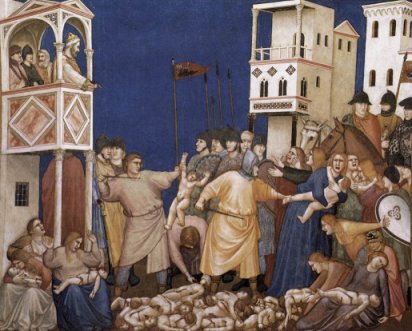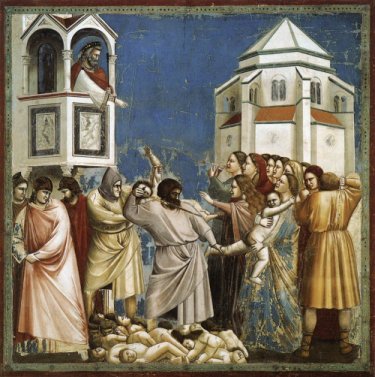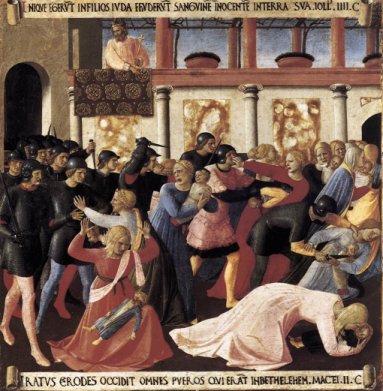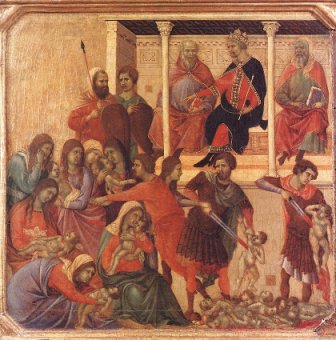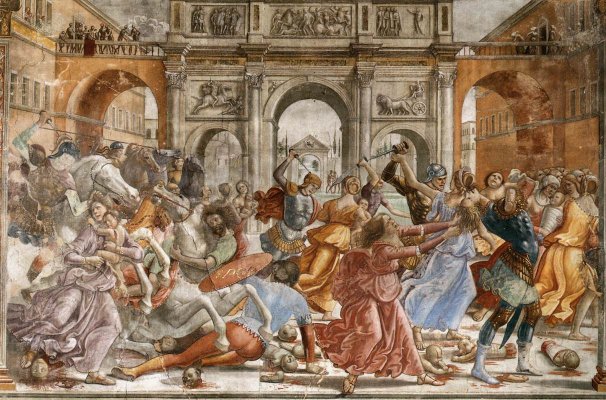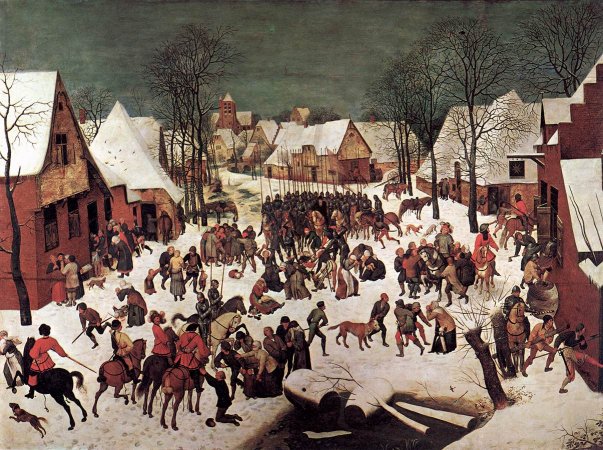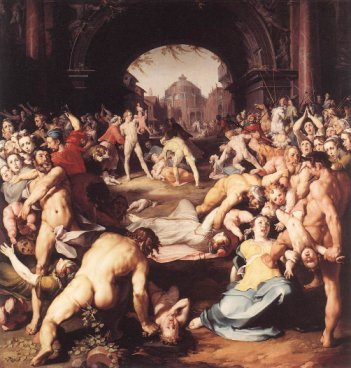|
Matthew tells us
that, in his rage at the duplicity of the Magi, Herod ordered the murder
of all boys between the ages of 0 and 2 In Bethlehem and the surrounding
district:
Then Herod, when he saw that he
was mocked of the wise men, was exceeding wroth, and sent forth, and
slew all the children that were in Bethlehem, and in all the coasts
thereof, from two years old and under, according to the time which he
had diligently enquired of the wise men. Then was fulfilled that which
was spoken by Jeremy the prophet, saying, in Rama was there a voice
heard, lamentation, and weeping, and great mourning, Rachel weeping for
her children, and would not be comforted, because they are not.
Matthew 2 v 16 – 18
Did it happen?
Almost more than any other event, this debate has proved a field day for
New Testament scholars.
Argument for:
It is in character for
Herod, historically known to be an extreme psychopath perfectly willing
to murder his own children to preserve his position.
Argument against:
It is not mentioned in any historical accounts, such as that by
Josephus.
A slightly more subtle
argument against is to ask, if Matthew did make it up, why he might have
done so. The answer to this may lie in his determination to provide Old
Testament provenance to the story of the birth of Christ. In particular
here, the narrative of Moses in Egypt in Exodus chapters 1 and 2,
describing the murder of Hebrew boys:
And the king of Egypt spake to the
Hebrew midwives, of which the name of the one was Shiphrah, and the name
of the other Puah: And he said, When ye do the office of a midwife to
the Hebrew women, and see them upon the stools; if it be a son, then ye
shall kill him: but if it be a daughter, then she shall live.
(Exodus 15 – 16)
The parallel with Moses
continues, of course, with the Flight into Egypt, and the return.
How
many?
Later accounts tend to sensationalise this aspect. Coptic
texts put it at 144,000! Including the girls, this would make a 0
- 4 year-old total of 288,000 in the Bethlehem area. A modern figure for
the proportion of children of this age in a population is around four
percent. Even in a high birthrate low life expectancy civilisation such
as that two thousand years ago, this would mean that the little town of
Bethlehem had a population of around three to four million. Hmmm.
Modern estimates are more conservative - around fifteen to twenty
children. If so, it is probably unlikely that Josephus would have
mentioned it anyway.
Who was Rachel
and why was she weeping?
Rachel was one of Jacob’s wives, and the mother of Joseph and Benjamin
– another Egypt connection. She
was said to weep from her tomb for the exiled children of Israel.
Conveniently for Matthew's
narrative, the location of
Rachel’s tomb at Ramah was usually considered to be
just up the road from Bethlehem.
The
Massacre in art
This is a familiar theme. These paintings are always moving, sometimes
horrific. Visitors to this site will know my predilection
for early art. To my mind, their simplicity and directness makes the
message even more powerful. So, to start with, two versions by Giotto.
Fascinating to compare them.
Note Herod himself giving orders from his
balcony.
|
